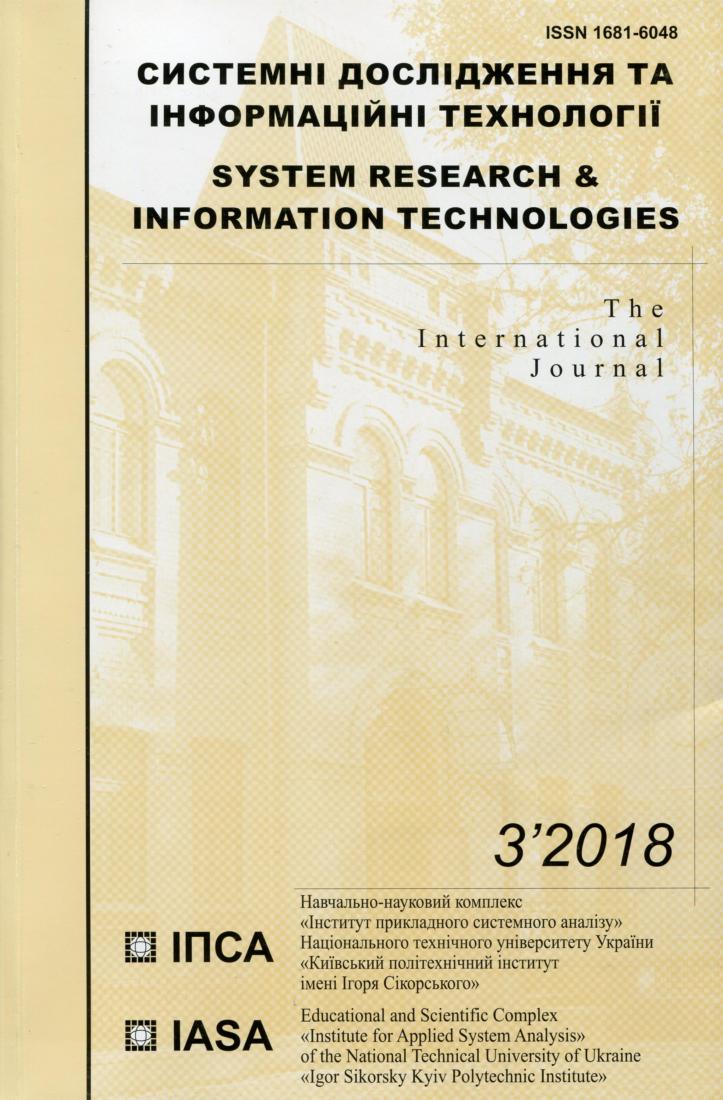Higher-order quantum genetic algorithm for 0-1 knapsack problem
DOI:
https://doi.org/10.20535/SRIT.2308-8893.2018.3.05Keywords:
quantum genetic algorithm, 0-1 knapsack problem, quantum gate operator, quantum register, entanglement of quantum statesAbstract
In order to enhance the effectiveness of the quantum genetic algorithm (QGA), it is proposed to switch to higher-order quantum registers in the quantum chromosome representation. Such representation makes it possible to apply a powerful quantum computations mechanism – quantum state entanglement. In the algorithm implementation, we also use an adaptive quantum gate operator and propose a quantum chromosome recovery technology for solving constrained combinatorial optimization problems. The influence of the quantum register size on the algorithm efficiency has been investigated. The advantages of the suggested approach in comparison with the QGA traditional implementation are demonstrated on the example of multidimensional 0–1 knapsack problem and different levels of input data correlation.References
Holland J.H. Adaptation in natural and artificial systems. An introductory analysis with application to biology, control, and artificial intelligence / J.H. Holland. — London: Bradford book edition, 1994. — 211 p.
Simon D. Evolutionary Optimization Algorithms: Biologically Inspired and Population-Based Approaches to Computer Intelligence / D. Simon. — John Wiley & Sons, 2013. — 742 p.
Narayanan A. Quantum-inspired genetic algorithms / A. Narayanan, M. Moore // Proceedings of the IEEE International Conference on Evolutionary Computation (ICEC’96), Nagoya, Japan, 1996. — P.61–66.
Han K.–H. Genetic quantum algorithm and its application to combinatorial optimization problem / K.–H. Han, J.–H. Kim // Proc.Congress on Evolutionary Computation. — Vol. 2. — La Jolla, CA, July 2000. — P. 1354–1360.
Wang H. The improvement of quantum genetic algorithm and its application on function optimization / H. Wang, J. Liu, J. Zhi, C. Fu // Math. Probl. Eng. — 2013. — P.1–10.
Nowotniak R. Higher-Order Quantum-Inspired Genetic Algorithms / R. Nowotniak, J. Kucharski // Federated Conference on Annals of Computer Science and Information Systems, 2014. — P. 465–470.
Tkachuk V. Quantum Genetic Algorithm Based on Qutrits and Its Application / V. Tkachuk // Mathematical Problems in Engineering. — Vol. 2018, Article ID 8614073, 8 p.
Zhang G. Quantum-inspired evolutionary algorithms: a survey and empirical study / G. Zhang // Journal of Heuristics. — 2010. — P. 1–49.
Han K. Quantum-inspired evolutionary algorithms with a new termination criterion, h-epsilon gate, and two-phase scheme / K. Han, J. Kim // IEEE Trans. Evol. Comput. — 2014. — 8 (2). — P. 156–169.
Iimura I. Integer-Type Gene-Coding Method Based on Quantum Bit Representation in Quantum-Inspired Evolutionary Algorithm: Application to Integer Knapsack Problem / I. Iimura // Journal of Signal Processing. — 2012. — Vol. 16, N 6. — P. 495–502.
Takata T. Performance Analysis of Quantum-Inspired Evolutionary Algorithm / T. Takata, T. Isokawa, A. Saitoh et al // SCIS & ISIS 2010, Dec. 8-12, Okayama Convention Center, Okayama, Japan.

